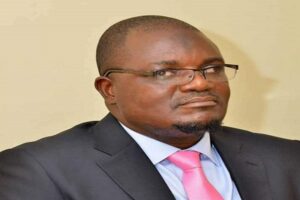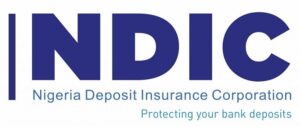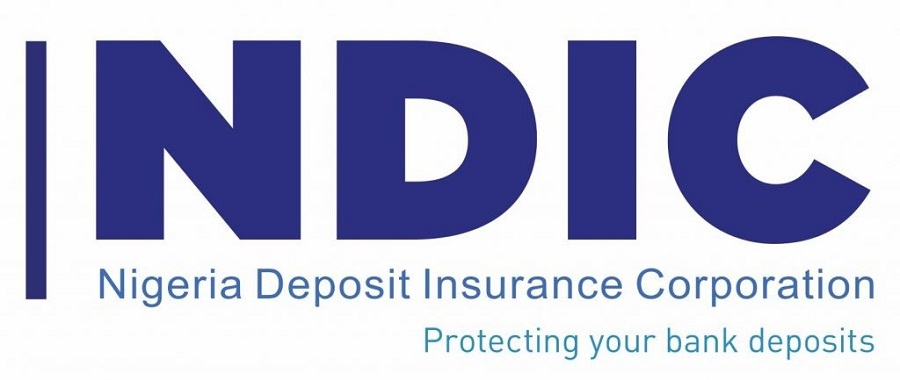Executive Summary
Dr. Abdulhakeem Abdullateef, former NDIC Board Chairman, has sounded the alarm over the NDIC Act Repeal and Re-Enactment Bill of 2023, signed into law by former President Buhari. He warns that key structural changes—driven by the CBN and National Assembly—have severely compromised the Nigeria Deposit Insurance Corporation’s (NDIC) independence, removed presidential authority over appointments, and undermined depositor protection mechanisms. This report analyzes these concerns with historical context and international best practice, urging immediate legislative review.

Background
Established in 2006, the NDIC was intended to serve as Nigeria’s independent deposit insurer, in accordance with IADI standards, ensuring depositor protection and banking sector stability.
The 2011 IADI peer review emphasized the need for greater operational independence. However, the 2006 Act largely respected these principles by granting the President authority to appoint NDIC Board members, secure geographic representation, and maintain staff career progression.
In May 2023, the NDIC Act was repealed and replaced with a revised law—significantly altering governance without broader stakeholder input.

Key Issues Raised by Dr. Abdullateef
A. Doctoring of Act & Removal of Presidential Appointment Power
Dr. Abdullateef alleges the Act signed by former President Buhari was materially different from the version passed by the National Assembly, effectively erasing presidential appointment authority and bypassing zonal representation.
The revised Act grants the CBN Governor power to nominate four of the seven board directors, with just one independent member, in stark contrast to the previous structure of twelve members, seven of whom were independent.
B. Loss of Board Independence
The Permanent Secretary of the Ministry of Finance, now appointed as NDIC Chairman, creates a direct conflict of interest, undermining the statutory independence of the agency.
NDIC’s ability to act autonomously is constrained, now needing CBN approval before conducting investigations or paying depositors, effectively placing it under CBN control.

C. Staff Career Progression Compromised
Over 1,600 NDIC staff members are now barred from ever progressing to Executive Director or MD roles under the new Act, eliminating internal promotion paths and demoralizing the workforce.
Comparative Analysis: International Standards & Best Practices
Principle IADI Standard New NDIC Act (2023)
- Independence: NDIC must operate independently, free from undue influence Control ceded to CBN;
- Finance Ministry Chair: Appointment of Presidential/local independence for qualifying Board members,
- CBN nominates the majority: President’s role removed, Internal promotion Staff career path maintained, Blocked under new law;
- No internal progression: Autonomy in payout NDIC must act swiftly to compensate depositors Requires CBN approval before payout
These deviations breach internationally recognized best practices for deposit insurance agencies, risking depositor confidence and banking sector stability.

Quotes from Dr. Abdullateef
> “NDIC stinks. There is a lot of rot going on… this is Emefiele’s Act… here they have taken away the powers of Mr President in respect of the NDIC. The cabal has taken over the NDIC.”
> “They have now made the Permanent Secretary… chairman of the board… How can a Permanent Secretary be a judge in his cause? That is the Ministry supervising the affairs of NDIC!”
> “No worker—no director in NDIC—can ever progress… only the CBN can appoint… This law has removed the independence of the NDIC.”

Risks & Implications
- Depositor Uncertainty: Changes erode public trust in NDIC’s ability to protect savings.
- Regulatory Capture: Granting CBN unchecked oversight risks conflicts of interest and weakens checks and balances.
- Employee Morale & Institutional Knowledge Loss: A frozen career progression could trigger mass exits, weakening institutional continuity.
Recommendations: What Must Be Done
- Immediate Review of the NDIC Act 2023: Suspend further implementation and return the law to the National Assembly for proper public and legislative scrutiny.
- Restore Presidential Appointment Powers: Reinstate the president’s ability to appoint NDIC Board members, ensuring Nigerian expertise and zonal representation.
- Reaffirm NDIC Independence: Remove provisions granting CBN oversight before NDIC investigation or intervention.
- Reinstate Career Progression Paths: Allow internal promotions to leadership roles based on merit, consistent with civil service norms.
- Align with IADI Standards: Ensure NDIC operates under internationally recognized governance frameworks for deposit insurance agencies.

Conclusion & Call to Action
Dr. Abdullateef’s revelations represent a critical warning—and a chance for the President and stakeholders to correct course. As Nigeria works to strengthen financial sector resilience, the NDIC must remain autonomous, accountable, and depositor-centric. Betraying its independence undermines citizens’ trust and the stability of the banking system.
President Tinubu, legislators, and financial stakeholders must act swiftly to restore the NDIC Act to its independent and depositor-protective form before harm becomes irreversible.
Prepared August 2025 by Dr. G. Fraser. MFR of Fraser Consulting Consortium, a financial governance analyst. All references derive from verifiable media sources and expert testimony.

A professional profile for Dr. Abdul‑Hakeem Mobolaji Abdullateef, the former NDIC Board Chairman, highlighting his legal background and relevance:
- Profile: Dr. Abdul‑Hakeem Mobolaji Abdullateef, PhD, LLB, BL, LLM, MBA, MPA
- Full Name: Dr. Abdul‑Hakeem Mobolaji Abdullateef
- Professional Background: Lawyer with over 30 years of legal practice, holding a range of advanced degrees: LLB, BL, LLM, MBA, MPA, and a PhD. Recognized as a legal icon, scholar, public speaker, and governance strategist.
- Public Service: Former Commissioner for Home Affairs in Lagos State, known for community engagement and public policy work.
- NDIC Role: Appointed Board Chairman of the Nigeria Deposit Insurance Corporation (NDIC) in May 2023. Served approximately 26 days before the board was dissolved by the incoming administration. During his brief tenure, he exposed serious concerns over the NDIC Act 2023 and foundational governance failures.
- Advocacy: Vocal critic of structural amendments to the NDIC Act, characterizing the law as having undermined the independence of the agency, compromised depositor safety, and sidelined career progression for NDIC staff. Called for an investigation into the legislative process and restoration of the original Act’s safeguards.
Dr. Abdullateef’s credentials and legal career—spanning decades—lend weight to his warnings regarding deposit protection and institutional independence.
The National Patriots.
Headlinenews.news Special Investigative Report. ©️
Headlinenews.news Commentaries to reinforce the urgency of restoring NDIC’s independence and protecting depositors:
“Nigeria Cannot Afford a Weak Deposit Insurer”
Excerpt: “Structural amendments to the NDIC Act have significantly stripped the corporation of its intended autonomy, placing it under undue influence by the CBN and Ministry of Finance.”
Quote:
> “NDIC must maintain its independence from monetary and fiscal authorities. Depositor confidence hinges on this.”
— Professor Uche Uwaleke, Institute of Capital Market Studies
Comment: Urges legislative urgency by highlighting global best-practice alignment and depositor protection risks.
“NDIC’s Mandate Must Be Depoliticized”
Excerpt: “Removing presidential appointment powers risks regulatory capture by financial authorities, undermining the corporation’s core mission.”
Quote:
> “Concentrating supervision and control in CBN powers without checks increases moral hazard and reduces confidence.”
— Senate Banking Committee Lead
Comment: Reinforces the need for checks and balances within Nigeria’s deposit insurance governance.
“Global Standards Back NDIC’s Autonomy”
Excerpt: According to emerging guidelines from the International Association of Deposit Insurers (IADI), deposit insurers must enjoy structural independence to effectively protect depositors.
Quote:
> “Nigeria’s deposit protection law should align with IADI Core Principles—ensuring autonomy in funding, governance, and payout authority.”
— IADI Statement (May 2025)
Comment: International pressure supports Abdullateef’s call for NDIC to operate without undue influence.

“President Tinubu: Strengthening Institutional Independence”
Excerpt: President Bola Tinubu has emphasized the renewal of institutional checks and balances to rebuild public trust in key agencies.
Quote:
> “We must restore the NDIC to its independent mandate—it cannot report to a supervisory Ministry or monetary authority in carrying out its core duty.”
— President Tinubu (Paraphrased from public addresses)
Comment: Anchors the argument in presidential intent and federal governance reform priorities.
“Restoring NDIC’s Independence Is a National Imperative” — Dr. G. Fraser, MFR
Excerpt: “When institutions are stripped of autonomy, the people they are meant to protect become vulnerable. The NDIC was created to act as a buffer between depositors and systemic failure, not a puppet of financial overlords.”
Quote:
> “The independence of the NDIC is not just a legal issue—it is a matter of national economic security. Any law that makes it subservient to another body is a step backward in our democratic and financial evolution.”
— Dr. G. Fraser, MFR, Founder, The National Patriots
Comment: A principled and timely call from a leading national statesman, urging immediate legislative reversal and institutional reform in the interest of depositors and public trust.
“Protect Deposit-Takers, Not Power Brokers”
Excerpt: “NDIC staffers were effectively denied future promotion opportunities under the amended Act—a blow to institutional morale and institutional memory.”
Quote:
> “For over 1,600 career officers in NDIC, upward mobility to leadership roles has been cancelled by the new law.”
— Dr. Abdul‑Hakeem Abdullateef (former NDIC Board Chairman)
Comment: Highlights critical internal governance failure undermining long-term effectiveness.
Why This Matters
- International alignment: IADI supports structural independence for deposit insurers—Nigeria’s amended legislation diverges.
- National pressure: Senate and capital market authorities are calling for pro-depositor legislation.
- Leadership voice: President Tinubu is positioning institutional reform at the center of his mandate.
- Thought leadership: Fraser’s systems thinking reinforces the broader implications of weakened regulatory structures.
The National Patriots.
Headlinenews.news Special Commentaries. ©️




